June 11 stands as one of history’s most eventful days, witnessing the rise and fall of empires, groundbreaking discoveries, and moments that shaped our modern world across centuries of human achievement.

Politics and Government Events on June 11
1903 – Serbian Royal Palace Coup Claims King Alexander I

Serbian military officers stormed the royal palace in Belgrade, assassinating King Alexander I and Queen Draga in a brutal coup. The violent overthrow shocked European royalty and marked the end of the Obrenović dynasty.
The assassination fundamentally altered Serbian politics and regional power dynamics. This dramatic regime change would later influence the political tensions that contributed to World War I.
1917 – King Alexander Assumes Greek Throne
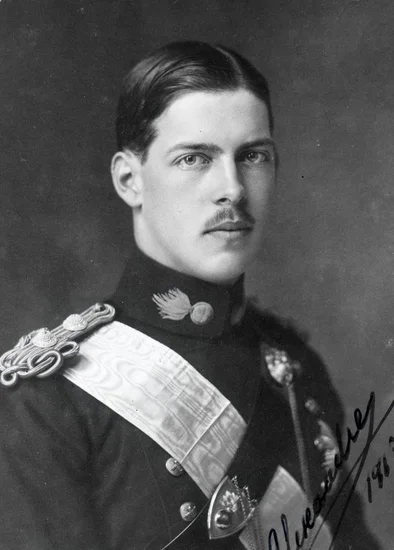
King Alexander ascended to the Greek throne after his father Constantine I abdicated under pressure from Allied forces occupying Athens. The political crisis reflected Greece’s complex position during World War I.
Allied intervention in Greek affairs demonstrated the wartime pressures on neutral nations. Constantine’s forced abdication highlighted the challenges facing European monarchies during the global conflict.
1963 – Kennedy Proposes Revolutionary Civil Rights Act

President John F. Kennedy addressed the nation from the Oval Office, proposing comprehensive civil rights legislation. His speech outlined plans to guarantee equal access to public facilities and federal voting rights protection.
The president’s bold proposal would eventually become the Civil Rights Act of 1964. Kennedy’s televised address marked a pivotal moment in the American civil rights movement.
1970 – First Female Army Generals Receive Ranks
Anna Mae Hays and Elizabeth P. Hoisington officially received their ranks as U.S. Army general officers. Their promotions shattered the military’s highest glass ceiling for women.
The historic ceremony followed their appointments on May 15, completing a groundbreaking process. These pioneering officers opened doors for countless women in military leadership roles.
1987 – First Black MPs Elected in Great Britain

Diane Abbott, Paul Boateng, and Bernie Grant won election as Great Britain’s first black Members of Parliament. Their victories represented a watershed moment in British political representation.
The three politicians broke barriers that had existed since Parliament’s founding. Their elections marked the beginning of greater diversity in British political leadership.
2008 – Canada Apologizes to First Nations
Prime Minister Stephen Harper delivered a historic official apology to Canada’s First Nations peoples. The apology addressed decades of abuse at Canadian Indian residential schools.
Harper’s statement acknowledged the systematic cultural destruction and trauma inflicted on Indigenous communities. The formal apology represented a crucial step toward national reconciliation and healing.
Military and Naval History on June 11
1937 – Stalin Executes Eight Army Leaders
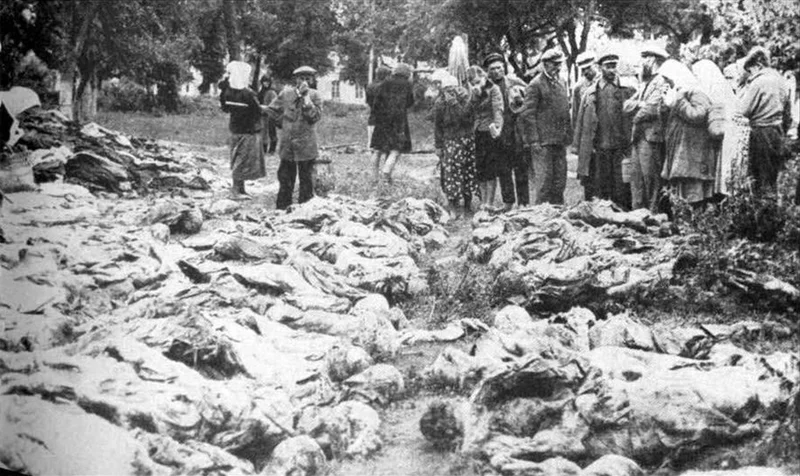
Joseph Stalin’s Great Purge claimed eight high-ranking Soviet army officers in a single day. The executions decimated the Red Army’s experienced leadership corps.
These purges severely weakened Soviet military capabilities on the eve of World War II. Stalin’s paranoid campaign against his own officers would prove catastrophic during the German invasion.
1940 – Siege of Malta Begins
Italian air forces launched the first raids against Malta, beginning one of World War II’s longest sieges. The strategic Mediterranean island would endure relentless attacks for years.
Malta’s location made it crucial for controlling Mediterranean shipping lanes. The island’s heroic resistance would earn it the George Cross from King George VI.
1942 – United States Extends Lend-Lease Aid to Soviet Union
America agreed to provide crucial Lend-Lease assistance to the Soviet Union in its fight against Nazi Germany. This decision marked a significant expansion of American military aid.
The agreement strengthened the unlikely alliance between capitalist America and communist Russia. Lend-Lease supplies would prove vital to Soviet survival and eventual victory.
1944 – USS Missouri Commissioned
The USS Missouri, America’s last battleship, officially entered naval service. This mighty vessel would later serve as the stage for Japan’s formal surrender.
The Missouri represented the pinnacle of American naval engineering and firepower. Her commissioning came at a crucial time in the Pacific War campaign.
Science and Discovery Milestones on June 11
1936 – Edwin Armstrong Demonstrates FM Broadcasting
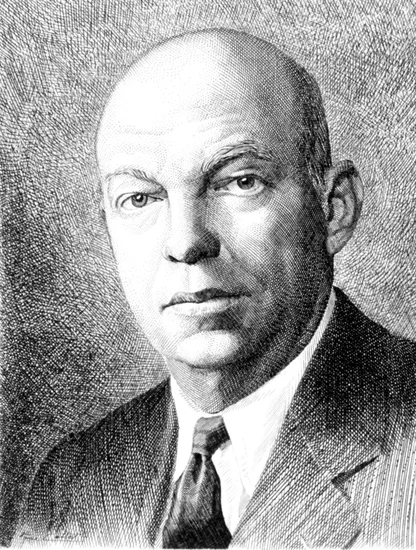
Inventor Edwin Armstrong showcased FM radio technology to Federal Communications Commission engineers in Washington, DC. His demonstration revealed FM’s superior sound quality over existing AM broadcasts.
Armstrong’s innovation would revolutionize radio broadcasting and audio fidelity. The demonstration marked the beginning of FM radio’s eventual dominance in music broadcasting.
1970 – First Cell Surface Antigens Identified
Lloyd J. Old identified the first cell surface antigens capable of differentiating between various cell types. This breakthrough opened new frontiers in cellular biology and immunology.
Old’s discovery laid crucial groundwork for modern cancer research and immunotherapy. His work would eventually contribute to revolutionary treatments for various diseases.
2002 – Congress Recognizes Antonio Meucci as Telephone Inventor
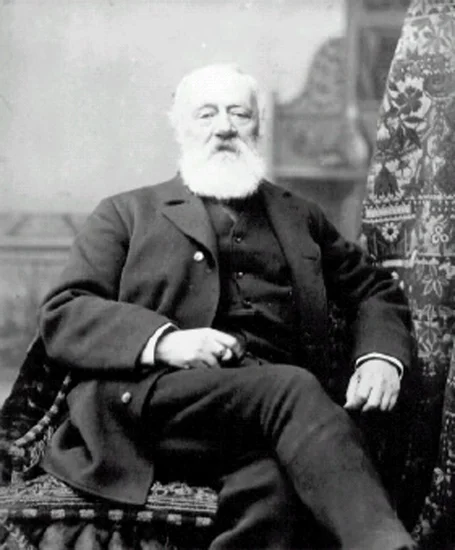
The United States Congress officially acknowledged Antonio Meucci as the telephone’s first inventor. This recognition corrected decades of historical oversight regarding the Italian inventor’s contributions.
Meucci’s poverty had prevented him from renewing his patent caveat, allowing Alexander Graham Bell to claim credit. The congressional resolution finally gave Meucci his rightful place in telecommunications history.
2008 – Fermi Gamma-ray Space Telescope Launches

NASA successfully launched the Fermi Gamma-ray Space Telescope into Earth orbit. The sophisticated instrument would study the universe’s most energetic phenomena.
Fermi’s mission focused on detecting gamma rays from black holes, neutron stars, and other cosmic sources. The telescope would provide unprecedented insights into high-energy astrophysics.
Cultural and Arts Events on June 11
1936 – London International Surrealist Exhibition Opens
The groundbreaking London International Surrealist Exhibition opened its doors to the public. This influential show introduced British audiences to the revolutionary surrealist art movement.
The exhibition featured works by Salvador Dalí, René Magritte, and other surrealist masters. The show’s impact would resonate throughout British art and intellectual circles for decades.
Religious and Social Events on June 11
1963 – Buddhist Monk’s Self-Immolation Shocks World
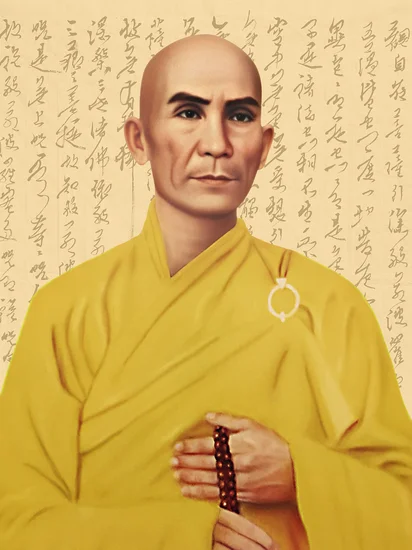
Buddhist monk Thích Quảng Đức set himself ablaze at a busy Saigon intersection to protest religious persecution. His self-sacrifice became an iconic image of peaceful resistance.
The monk’s dramatic protest highlighted the South Vietnamese government’s oppression of Buddhists. His sacrifice galvanized international opposition to the Diệm regime’s policies.
1963 – Alabama Governor Blocks University Integration
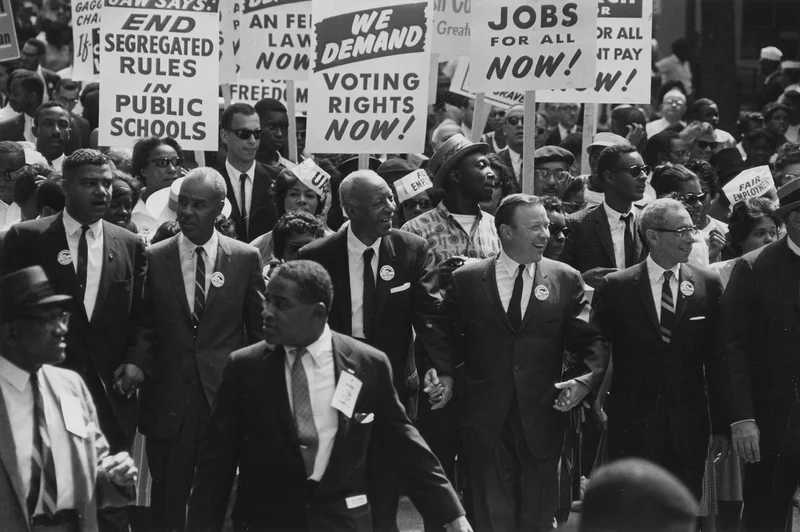
Governor George Wallace defiantly blocked the entrance to the University of Alabama’s Foster Auditorium. His symbolic stand attempted to prevent two black students from enrolling.
Federal troops ultimately escorted Vivian Malone and James Hood to register for classes. Wallace’s failed resistance became a defining moment in the civil rights struggle.
1971 – Native American Occupation of Alcatraz Ends
Federal authorities forcibly removed the final Native American protesters from Alcatraz Island. The occupation had lasted 19 months and drawn national attention to indigenous rights.
The symbolic takeover of the former federal prison highlighted Native American grievances. The occupation inspired similar activism and greater awareness of indigenous issues.
Business and Economic Events on June 11
1998 – Compaq Acquires Digital Equipment Corporation
Compaq Computer completed its $9 billion acquisition of Digital Equipment Corporation. The massive deal represented the largest high-tech acquisition in history at that time.
The merger combined Compaq’s PC expertise with Digital’s enterprise computing capabilities. This strategic acquisition positioned Compaq as a major player in corporate computing markets.
Transportation and Infrastructure on June 11
1971 – Native American Occupation of Alcatraz Ends
Federal authorities forcibly removed the final Native American protesters from Alcatraz Island. The occupation had lasted 19 months and drawn national attention to indigenous rights.
The symbolic takeover of the former federal prison highlighted Native American grievances. The occupation inspired similar activism and greater awareness of indigenous issues.
1978 – Student Political Movement Founded in Pakistan

Altaf Hussain established the All Pakistan Muhajir Students Organisation (APMSO) at Karachi University. The student movement would later evolve into a major political force.
APMSO addressed the concerns of Urdu-speaking immigrants in Pakistan. The organization’s founding marked the beginning of organized political activism among the Muhajir community.
1981 – Massive Earthquake Strikes Iran
A devastating magnitude 6.9 earthquake struck Golbaf, Iran, killing at least 2,000 people. The powerful tremor caused widespread destruction across the region.
The earthquake highlighted Iran’s vulnerability to seismic activity along major fault lines. International aid efforts mobilized to assist with rescue and relief operations.
Sports and Recreation on June 11
1919 – Sir Barton Wins First Triple Crown
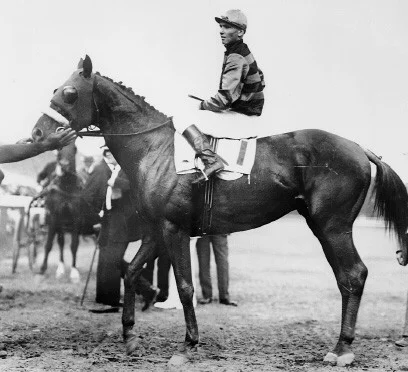
Sir Barton claimed victory in the Belmont Stakes, becoming the first horse to win the U.S. Triple Crown. This historic achievement established one of horse racing’s most prestigious accomplishments.
The thoroughbred’s sweep of the Kentucky Derby, Preakness, and Belmont Stakes created a new standard of excellence. Sir Barton’s feat would inspire generations of horse racing enthusiasts.
1955 – Deadliest Motorsports Accident at Le Mans
A catastrophic collision between an Austin-Healey and Mercedes-Benz killed 83 spectators at the 24 Hours of Le Mans. The tragedy remains motorsport’s deadliest accident.
The horrific crash sent debris flying into crowded spectator areas. The disaster led to significant safety improvements in international motorsport regulations.
2010 – First African FIFA World Cup Begins
The FIFA World Cup kicked off in South Africa, marking the first time the tournament was held on African soil. The historic event showcased Africa’s capability to host major international sporting events.
The tournament brought global attention to South African culture and achievements. The successful World Cup helped change international perceptions of African infrastructure and hospitality.
Notable Births on June 11
1910 – Jacques Cousteau, Marine Explorer

Jacques Cousteau entered the world in France, destined to become the ocean’s greatest advocate. His childhood fascination with underwater exploration would shape his revolutionary career.
Cousteau co-developed the aqua-lung, making underwater filming and research possible. His documentaries brought the ocean’s wonders into millions of homes worldwide.
1913 – Vince Lombardi, Football Legend
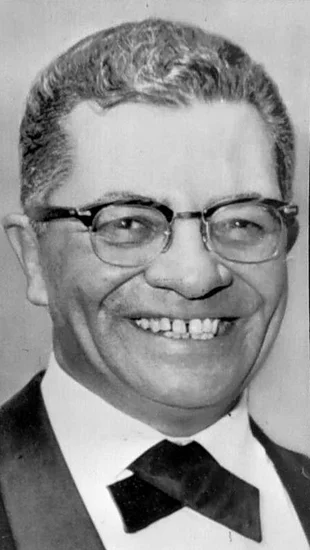
Vince Lombardi was born in New York, beginning a life that would redefine American football coaching. His intense dedication to excellence would become legendary in sports circles.
Lombardi’s coaching philosophy emphasized discipline, teamwork, and relentless pursuit of perfection. The Super Bowl trophy bears his name, cementing his legacy in professional football.
1933 – Gene Wilder, Comedic Genius

Gene Wilder was born in Wisconsin, launching a career that would bring joy to millions. His unique blend of neurotic energy and childlike wonder defined a generation of comedy.
Wilder’s collaborations with Mel Brooks and Richard Pryor created cinematic masterpieces. His portrayal of Willy Wonka remains one of film’s most beloved characters.
1939 – Jackie Stewart, Racing Champion

Jackie Stewart was born in Scotland, destined to become one of Formula One’s greatest drivers. His racing career would span the sport’s most dangerous era.
Stewart won three Formula One World Championships while advocating for improved safety standards. His efforts helped transform motorsport from a deadly gamble into a safer spectacle.
1949 – Joe Montana, Football Icon

Joe Montana was born in Pennsylvania, beginning a journey to NFL greatness. His calm demeanor under pressure would earn him the nickname “Joe Cool.”
Montana led the San Francisco 49ers to four Super Bowl victories. His clutch performances in crucial moments established him as one of football’s greatest quarterbacks.
1950 – Hugh Laurie, Versatile Performer

Hugh Laurie was born in England, launching a career spanning comedy, drama, and music. His versatility would make him a beloved figure on both sides of the Atlantic.
Laurie’s portrayal of Dr. Gregory House made him a household name in America. His musical talents and comedic timing showcase his remarkable range as a performer.
1963 – Peter Dinklage, Acclaimed Actor

Peter Dinklage was born in New Jersey, beginning a career that would redefine representation in entertainment. His talent and determination would break down barriers in Hollywood.
Dinklage’s portrayal of Tyrion Lannister in Game of Thrones earned critical acclaim and Emmy Awards. His success has opened doors for actors with dwarfism in mainstream entertainment.
1974 – Joshua Jackson, Television Star

Joshua Jackson was born in Canada, starting a career that would span decades of television success. His boyish charm and acting skills would make him a teen heartthrob.
Jackson’s roles in Dawson’s Creek and Fringe demonstrated his range as a performer. His Canadian-American background helped him connect with audiences on both sides of the border.
Notable Deaths on June 11
1903 – Alexander I of Serbia Assassinated
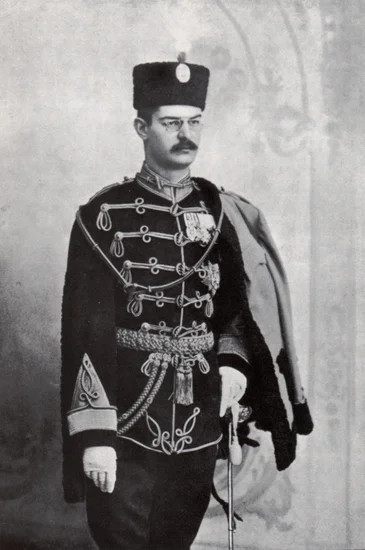
King Alexander I of Serbia died violently in a military coup that shocked European royalty. His assassination marked the end of the Obrenović dynasty’s turbulent rule.
The king’s death resulted from growing military dissatisfaction with his authoritarian policies. His assassination would have far-reaching consequences for Balkan politics and European stability.
1963 – Thích Quảng Đức, Buddhist Martyr
The Vietnamese Buddhist monk died by self-immolation in Saigon, protesting religious persecution. His sacrifice became one of the 20th century’s most powerful images of peaceful resistance.
Thích Quảng Đức’s death galvanized international opposition to the South Vietnamese government. His courage inspired countless others to stand up against oppression worldwide.
1979 – John Wayne, American Icon

John Wayne died in Los Angeles, ending a career that defined American cinema’s cowboy archetype. His distinctive voice and commanding presence made him Hollywood’s most recognizable star.
Wayne’s films embodied American values of courage, justice, and frontier spirit. His death marked the end of an era in American entertainment and cultural identity.
1991 – DeForest Kelley, Beloved Doctor

DeForest Kelley died in Los Angeles, leaving behind a legacy as Star Trek’s compassionate Dr. McCoy. His portrayal of the ship’s doctor made him a beloved figure to science fiction fans.
Kelley’s “Bones” McCoy provided emotional balance to the logical Spock and decisive Kirk. His death saddened millions of fans who considered him part of their television family.
2001 – Timothy McVeigh Executed

Timothy McVeigh died by lethal injection for his role in the Oklahoma City bombing. His execution marked the end of one of America’s most devastating domestic terrorism cases.
McVeigh’s death brought closure to families of the 168 victims killed in the federal building bombing. His execution represented justice for one of the deadliest terrorist attacks on American soil.
2015 – Ornette Coleman, Jazz Revolutionary

Ornette Coleman died in New York, leaving behind a legacy that revolutionized jazz music. His free jazz innovations challenged traditional musical structures and inspired countless musicians.
Coleman’s saxophone playing and compositional style broke boundaries in jazz expression. His death marked the end of an era in experimental music and avant-garde jazz.
Holidays and Observances on June 11
King Kamehameha I Day, Hawaii

Hawaii celebrates King Kamehameha I Day, honoring the monarch who unified the Hawaiian Islands. This state holiday commemorates the king’s achievements in Hawaiian history and culture.
The celebration includes parades, cultural performances, and traditional Hawaiian ceremonies. King Kamehameha’s legacy continues to influence Hawaiian identity and pride.
Student Day, Honduras
Honduras observes Student Day, recognizing the importance of education and student activism. This observance highlights the role of students in social and political movements.
The day honors students who have contributed to democratic movements and social progress. Educational institutions across Honduras organize special events and ceremonies.
Davis Day, Cape Breton
Cape Breton, Nova Scotia, celebrates Davis Day, commemorating local historical significance. This regional observance reflects the area’s unique cultural heritage and community pride.
The celebration includes local historical presentations and community gatherings. Davis Day strengthens connections between Cape Breton residents and their shared heritage.
